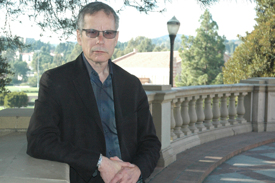The Syrian Refugee Crisis: How Did We Get Here & Where Do We Go?
James Gelvin
Wednesday, 20 Apr 2016 at 8:00 pm – Great Hall, Memorial Union
James Gelvin is a professor of Middle Eastern history at the University of California, Los Angeles. Before joining the faculty at UCLA, Gelvin taught at the Massachusetts Institute of Technology, Boston College, and Harvard. In 2002-03 he was the Sheikh Zayed bin Sultan Al Nahyan Visiting Professor of History at the American University in Beirut, Lebanon. Gelvin is the author of three books: Divided Loyalties: Nationalism and Mass Politics in Syria at the Close of Empire; The Modern Middle East: A History; and The Israel-Palestine Conflict: 100 Years of War. He earned an MA from Columbia University’s School of International and Public Affairs and a PhD from Harvard.A question-and-answer session will follow his presentation with additional information provided by Carly Ross, Director of the U.S. Committee for Refugees and Immigrants in Des Moines and Iowa State faculty member Nell Gabiam.
Responders and Resource People
Carly Ross directs the U.S. Committee for Refugees and Immigrants in Des Moines. It is Iowa’s largest refugee resettlement agency, supporting approximately 650 newly-arrived refugees each year. Ross also has experience with the refugee screening process overseas in East Africa.
Nell Gabiam has appointments in both the Political Science and Anthropology Departments at Iowa State. She has conducted fieldwork among Palestinians in France as part of a collaborative project on statelessness with faculty at the University of Oxford’s Refugee Studies Center. Her most recent project has focused on the effects of the war in Syria on the country’s Palestinian refugee population, and traveled to Jordan, Lebanon, Turkey, the United Arab Emirates, France, and Sweden.
Cosponsored By:
- Arab Student Association
- College of Liberal Arts & Sciences
- History
- International Student Council
- International Studies Program
- Political Science
- Sociology
- World Languages and Cultures
- Committee on Lectures (funded by Student Government)
Stay for the entire event, including the brief question-and-answer session that follows the formal presentation. Most events run 75 minutes.
Sign-ins are after the event concludes. For lectures in the Memorial Union, go to the information desk in the Main Lounge. In other academic buildings, look for signage outside the auditorium.
Lecture Etiquette
- Stay for the entire lecture and the brief audience Q&A. If a student needs to leave early, he or she should sit near the back and exit discreetly.
- Do not bring food or uncovered drinks into the lecture.
- Check with Lectures staff before taking photographs or recording any portion of the event. There are often restrictions. Cell phones, tablets and laptops may be used to take notes or for class assignments.
- Keep questions or comments brief and concise to allow as many as possible.




